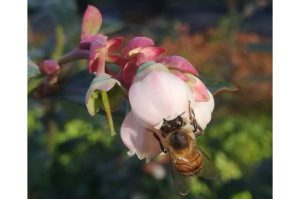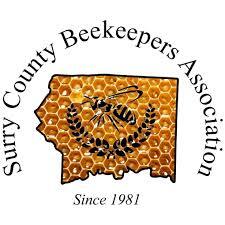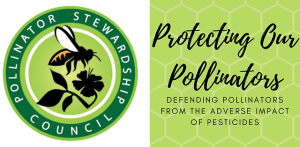Blueberries and their pollinators aren’t native to South Africa, but local honey bees can help
By: Keanu Martin, The Conversation
In recent years, blueberries have become increasingly popular because of their perceived health benefits. They’re now planted all over the world, including areas where their natural pollinators don’t occur—like South Africa, where the blueberry exports to the world have grown from 1,792 tons in 2014 to 20,013 tons in 2021.
In South Africa there aren’t any native pollinators for the fruit in the country, and the local honey bees aren’t seen as an efficient substitute. Farmers are considering importing large bees, like bumble bees, that aren’t native to the country. But that could devastate local environments: bumble bees are strong competitors and often outcompete native pollinators for resources, as has been seen in Argentina.
Until now, little research had focused on how honey bees actually perform as blueberry pollinators in South Africa. It was important to fill this knowledge gap, since the honey bee is the country’s only pollinator that occurs in large enough populations, is easily managed and can be moved around to meet commercial needs.
In two related studies, we put honey bees’ pollination abilities to the test on some of the most common blueberry varieties planted in South Africa. Honey bees were found to be reliable pollinators of blueberries, increasing fruit number, fruit diameter and mass and decreasing fruits’ developmental time. Importing bigger bees like bumble bees is simply not necessary.
Many people in the commercial fruit industry think honey bees are poor blueberry pollinators. There are a few reasons for this.
First, honey bees are substantially smaller than the natural pollinators of blueberries, and they cannot vibrate their bodies at the frequency needed for efficient pollen release.
Also, honey bees are often reluctant to forage in cold weather. So there may be little pollination during periodic cold spells. They have slower foraging times and deposit less pollen on each visit to a plant than other pollinators like bumble bees.
These concerns are valid, but we show that honey bees are far better pollinators of blueberries than farmers may think. Our research shows that, as new cultivated blueberry varieties become available, buzz pollination may not be as key as it was with earlier varieties.
Honey bee pollination consistently produced better results. We found that, on average, when blueberry plants were not pollinated, they produced 47% less fruit and the fruits were 13% smaller than with honey bee pollination. Blueberries also took 6% longer to ripen without honey bee pollination than with it.
Certain varieties are not reaching their full potential fruit production because not enough high-quality pollen is being transferred between flowers. Our research suggests that this may not be due to the inefficiency of bees. Instead, it comes down to pollen movement between varieties. We also suggest that the way the blueberries are planted makes a difference and will explore this hypothesis in a forthcoming paper.
Next steps
We hope that our findings will debunk the notion that highly invasive pollinators need to be imported into South Africa.
We are here to share current happenings in the bee industry. Bee Culture gathers and shares articles published by outside sources. For more information about this specific article, please visit the original publish source: Blueberries and their pollinators aren’t native to South Africa but local honey bees can help (phys.org)









